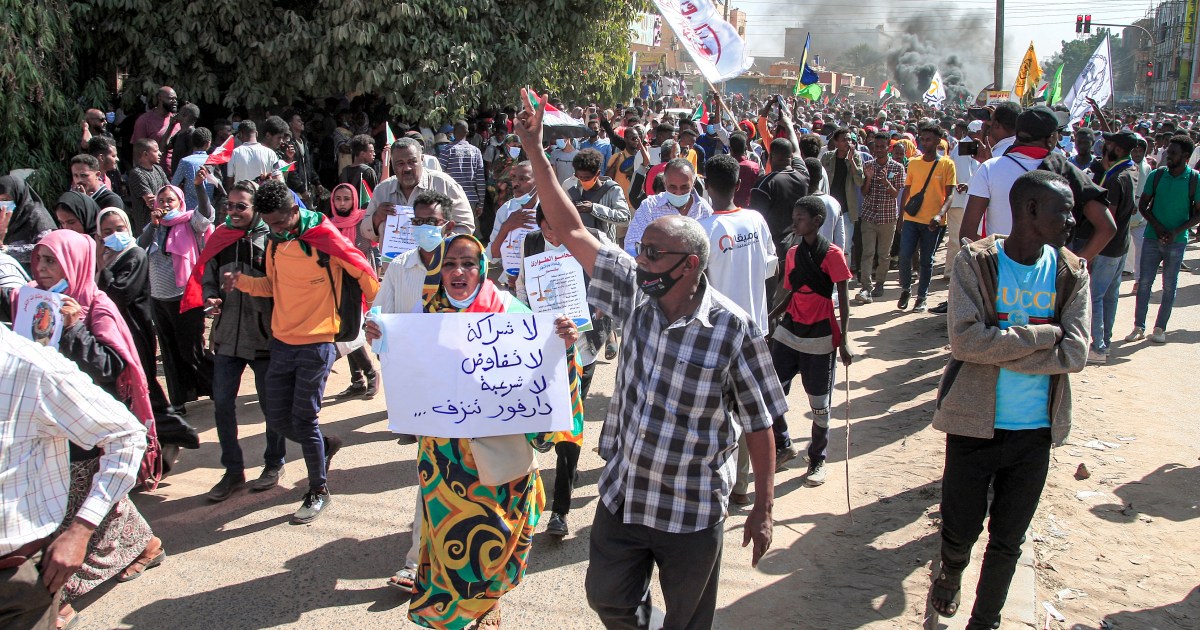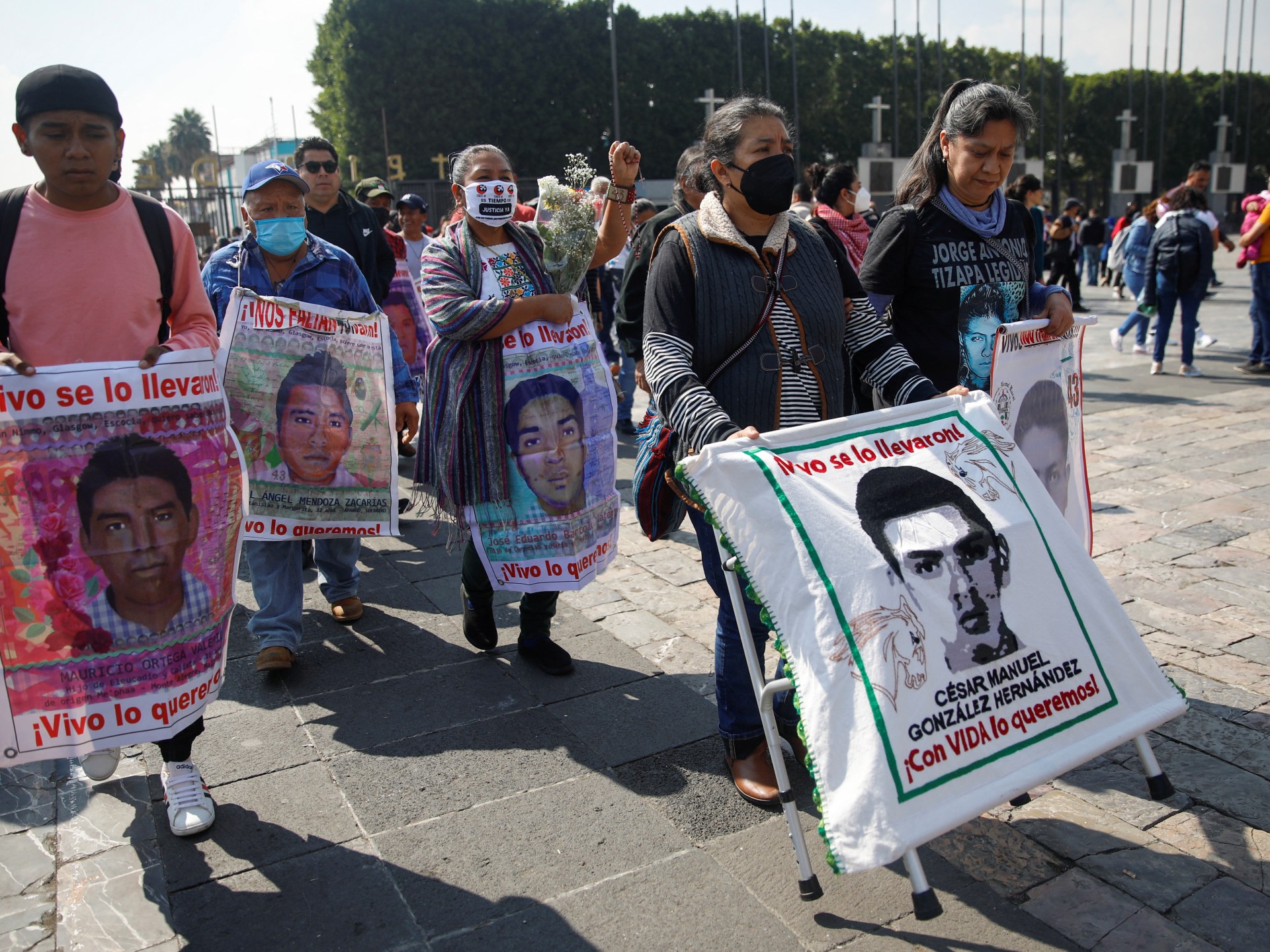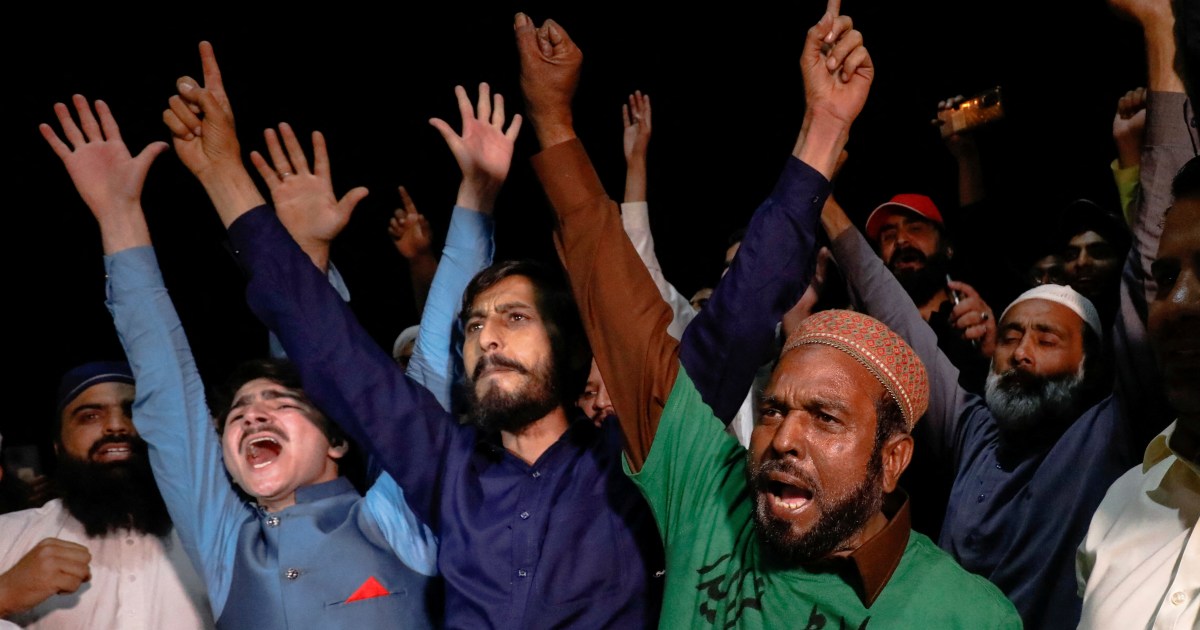Sudanese rally in new anti-coup protests amid tight security | News
Demonstrators are marching in Khartoum and across the country to denounce the October military coup and subsequent deal.
Thousands of Sudanese protesters are marching in the capital, Khartoum, and across the country to denounce the October military coup and subsequent deal that reinstated the prime minister but sidelined the pro-democracy movement.
Hundreds took to the streets on Saturday even as authorities tightened security across the capital, deploying troops and closing all bridges over the Nile River linking Khartoum with its twin city of Omdurman and the district of Bahri, the state-run SUNA news agency reported.
In Khartoum, the marches started in different locations, from where the protesters would converge on the presidential palace.
Rallies got under way also in other cities, including Wad Madani and Atbara.
Authorities warned protesters against approaching “sovereign and strategic” sites in central Khartoum – a reference to main government buildings and key institutions.
The city’s Security Committee said Sudanese forces would “deal with chaos and violations”, SUNA reported.
“Departing from peacefulness, approaching and infringing on sovereign and strategic sites in central Khartoum is a violation of the laws,” SUNA reported, citing a provincial security coordination committee.
“Chaos and abuses will be dealt with,” it added.
Last weekend, security forces violently dispersed demonstrators when they attempted to stage a sit-in near the presidential palace.
At least three protesters were killed and more than 300 were wounded on Sunday.
The UN said there were also allegations of sexual violence, including rape and gang rape by security forces against female protesters.
Volker Perthes, the UN special envoy for Sudan, urged security forces to “protect” the planned protests and refrain from arresting people for simply wanting to take part in the demonstrations.
Ahead of the demonstrations on Saturday, activists reported disruption of internet access on phones in Khartoum, a tactic that had been used by the generals when they seized power on October 25.
Advocacy group NetBlocks said Sudan was experiencing mobile internet disruptions early on Saturday.
“The mechanism appears similar or identical to that used during the October post-coup blackout,” Alp Toker, the group’s director, told The Associated Press.
The government did not comment on the disruptions.
The military and civilian political parties, known as the Forces of Freedom and Change Coalition (FFC), had shared power since Omar al-Bashir’s removal in April 2019.
The October military takeover however upended the fragile transition to democratic rule and led to relentless street demonstrations across Sudan. At least 47 people were killed and hundreds wounded in protests triggered by the coup, according to a tally by a Sudanese medical group.
Civilian parties and neighbourhood resistance committees have since organised several widescale protests to demand full civilian rule, under the slogan “no negotiation, no partnership, no legitimacy”.
Prime Minister Abdalla Hamdok, a former UN official seen as the civilian face of Sudan’s transitional government, was reinstated last month amid international pressure in a deal that calls for an independent technocratic Cabinet under military oversight led by him.
That deal, however, was rejected by the pro-democracy movement, which insists that power be handed over to a fully civilian government tasked with leading the transition.
The prime minister is continuing discussions on finding a way out of the political deadlock. He met Friday with leaders of the country’s largest Umma Party, his office said.




